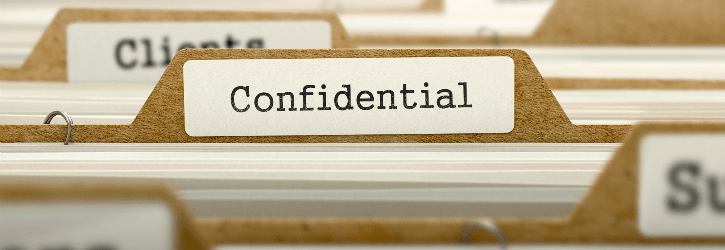
Welcome To The Data Leak Lawyers Blog
We focus on the latest news surrounding data breaches, leaks and hacks plus daily internet security articles.

We focus on the latest news surrounding data breaches, leaks and hacks plus daily internet security articles.

For the victim, stolen medical data can lead to a significant amount of distress, and there can be a huge number of risks if your private and sensitive information has been exposed.
We know that criminals and fraudsters target medical data because it can be valuable to them for a number of reasons. It can be used for ransom and identity theft, or even for criminals to produce forged documents like receipts and prescriptions. The so-called ‘dark web’ is reportedly rife with medical data that’s up for sale.
As a victim, what can you do if your medical data is stolen? Can you be eligible to make a claim for medical data breach compensation?

News of a victim support data breach has been published by the Information Commissioner’s Office (ICO), which has led to a caseworker being prosecuted.
It’s reported that Restorative Justice Caseworker, Jeannette Baines, who had worked with victim support, sent personal and private information from a work email address to a personal email address.
This kind of breach where employees misuse their rights of access to personal data to send it to personal accounts isn’t uncommon. Many of the ICO’s individual prosecutions involve this kind of breach being committed, and the consequences for the offender can be severe.

If you’ve fallen victim to TalkTalk fraudsters and you need advice about claiming data breach compensation, we can help, and you may be eligible to join our action.
After the huge 2015 TalkTalk data breach, a number of customers – including ones we’ve helped – reported being contacted by fraudsters who were posing as TalkTalk. People we spoke to told us that the fraudsters knew things like their personal information, TalkTalk account details, and even information about complaints on their files. That’s how they convinced them they were the real deal.
As such, it’s believed that the fraudsters may have gained this information from the TalkTalk cyber-attack. Although the company has previously denied this is the case, we can only look at the evidence in front of us. And that’s why we have been taking compensation claims forward on a No Win, No Fee basis.

NHS data compensation claims could be set to keep rising as news of substandard systems hit the media headlines this month.
We can tell you from experience that a large proportion of the people we help for individual and group action / multi-party cases are for NHS data breach compensation claims. Worryingly, recent investigation results led to MPs reportedly branding some NHS systems as ‘unfit for purpose’, with other systems branded as ‘hopeless’, which doesn’t fill patients with confidence at all.
Part of the problem is understood to be the variety of systems used, and the age of some of the IT the NHS are relying upon.

A number of Leicestershire police data breach incidents have been reported in the news recently. Police data breaches are always worrying, so it’s concerning to learn of these incidents.
With public sector data breaches often topping the charts in terms of the volumes of individual cases we take forward, this is a serious matter. The police computers and databases hold a wealth of incredibly personal and sensitive data about millions of people. In the wrong hands, leaks and misuse of such information can be severe for the victims.
Right now, we’re representing people who are claiming data breach compensation as victims of police incidents. News of the prosecutions and investigations into a number of incidents that stem from the Leicestershire force is concerning.

You can be entitled to make a claim for compensation if you have been the victim of a human error data leak, and we can offer No Win, No Fee representation.
Some may believe that there’s nothing that can be done about a human error data leak, and that it’s just “one of those things”.
But that’s not the case at all. With one recent study suggesting that almost two-thirds of data breaches are directly caused by human error, victims need to know what they can do about it. And that’s where we can help you.

Confidential document disposal is a matter that all organisations – both public and private – must take seriously to avoid a data breach incident. But we know things don’t always get done properly as they ought to, and that’s where we come in.
Important data protection laws – including GDPR that came into force this time last year – encompass the handling, and therefore destruction, of data. Confidential documents must not be binned with other general waste because it may lead to a significant data breach. Confidential waste should always be disposed of in a way that ensures information will not be leaked.
If you’re the victim of a data breach that’s caused by a confidential document disposal failure, you may be able to make a claim for compensation.

A bug is said to be behind a recent Twitter data breach incident that has led to the location data for users being accidentally shared with a third-party.
This isn’t the first bug that’s led to a data breach for the popular social media platform. Just last year, 330 million users were advised to change their passwords after a bug potentially exposed them in plain text. News of this latest breach also comes at a time where Facebook and data protection incidents feel like they’re becoming the norm.
Once again we’re left wondering whether our data will ever be safe. There’s just so much information out there that’s being collected and shared about us, and when things go wrong, data breaches can easily occur.

This week, we discovered that a vulnerability had been exploited and was used as part of the well-publicised WhatsApp security breach.
Arguably, news of this latest data breach couldn’t have come at a worse time for the owners of the messaging platform, Facebook, who remain embroiled in data and privacy issues that have arisen in the last few years. WhatsApp’s end-to-end encryption that was enacted recently has perhaps made us all feel a little more secure when using the messaging service, but this week’s hack has been cause for alarm.
The vulnerability is said to have been resolved, but with unknown numbers of people affected, should we be worried?

There can be huge risks when it comes to online streaming data breach incidents, with research showing that they’re one of the biggest targets for cybercriminals.
And it makes sense as to why they’re a huge target as well. Not only could they gain financial information from your account, but they could also use your account for pirating as well.
Online streaming is growing and growing in popularity, so there’s no way that it will be left behind when it comes to targets for cybercriminals and hackers. It can be so easy for accounts to be breached, so you need to make sure to do all you can to protect yourself. And know your rights when it’s not your fault!
EasyJet admits data of nine million hacked
British Airways data breach: How to claim up to £6,000 compensation
Are you owed £5,000 for the Virgin Media data breach?
Virgin Media faces £4.5 BILLION in compensation payouts
BA customers given final deadline to claim compensation for data breach
Shoppers slam Morrisons after loyalty points stolen
Half a million customers can sue BA over huge data breach
Lawyers accuse BA of 'swerving responsibility' for data breach
The biggest data breaches of 2020
Fill out our quick call back form below and we'll contact you when you're ready to talk to us.